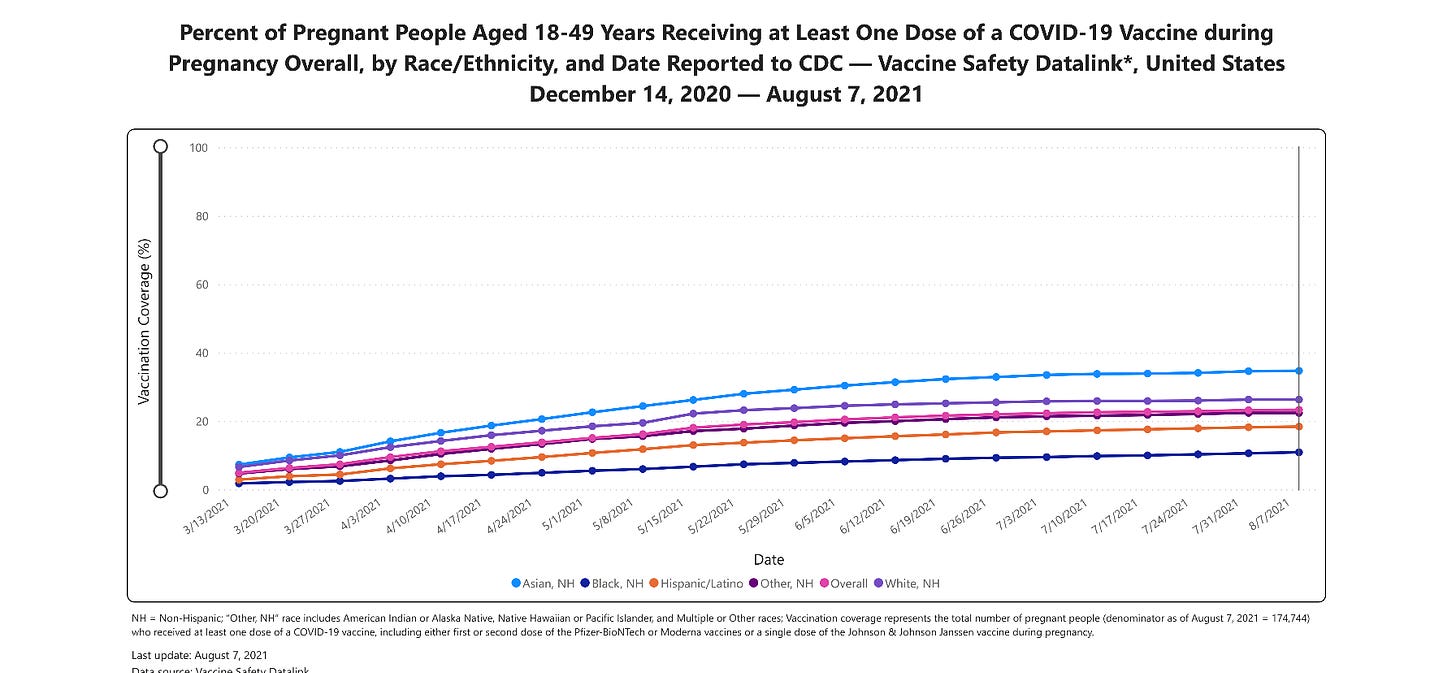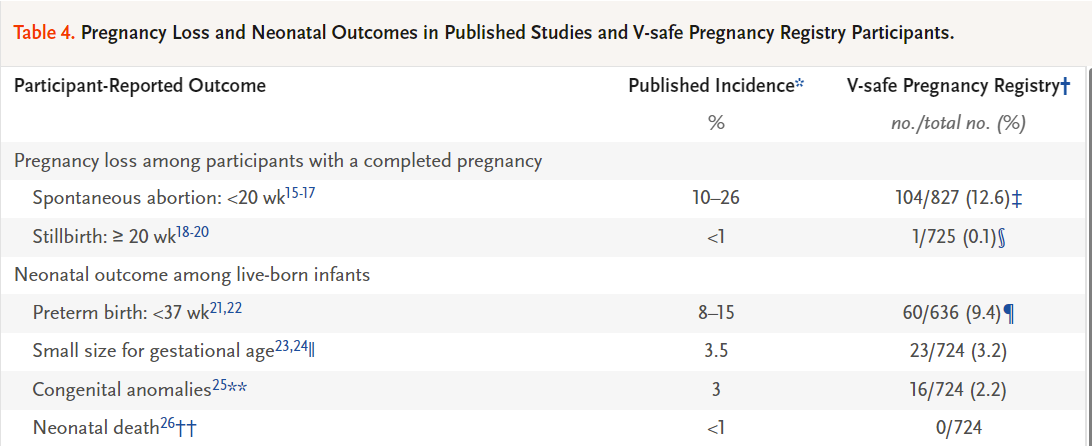The American College of Obstetricians and Gynecologists (ACOG) and the Society for Maternal-Fetal Medicine (SMFM)- the two leading organizations for OB clinicians- strongly recommend vaccines for pregnant people. Yesterday, the CDC strengthened its guidelines to align with the ever growing body of scientific evidence that mRNA vaccines are safe and needed for pregnancy.
There is a great need
Only 23.3% of pregnant people have received at least one vaccine dose in the United States. And, among them, there is overwhelming racial/ethnic disparities. Asians have by far the highest vaccination rate (like the general public) at 34.7% and Blacks have the lowest at 10.9%.
Pregnant people that don’t have an immunity wall in the wake of Delta is a huge problem. They (and their unborn babies) are at high risk for severe COVID-19 disease. By now this is well-established, as there have been 42+ studies on this topic thus far. Pregnant people with COVID-19 disease are…
…more likely to go to the ICU, need ventilation, and/or need oxygen compared to non-pregnant (here)
…more likely to have preeclampsia (here)
…more likely to have babies born preterm (here) or stillborn (here)
…more likely to have their babies admitted to the neonatal unit (here)
What prompted the CDC to strengthen guidance?
While there is no biological reason to expect that mRNA COVID-19 vaccines present a risk to pregnancy, pregnant people weren’t eligible for clinical trials (this is normal practice that is under high scrutiny) so real world data is important to track.
A new study came out this week in which scientists analyzed V-safe data- an active surveillance program initiated by the CDC to evaluate “real world” safety of vaccines. In the database, 2,020 pregnant people received an mRNA vaccine preconception or prior to 20 weeks’ gestation. They were then followed until birth and beyond (and, if willing, continue to be followed for data). What did they find?
A total of 165 participants reported a miscarriage (i.e. spontaneous abortion), of which 154 occurred prior to 14 weeks’ gestation.
After taking into account age of the mother, the risk of miscarriage was 12.8%. Which is the same risk of miscarriage in the general population.
This evidence adds the numerous other studies on this topic
In June, the New England Journal of Medicine also published results using V-safe. (See my previous post about it here). In short, among the 3,958 pregnant people, they found no unexpected pregnancy or infant outcomes related to COVID-19 vaccination during pregnancy, regardless of when they got vaccinated (1st, 2nd, and 3rd trimester). Specifically, they found that of the 827 people who completed pregnancy, pregnancy loss, preterm birth, babies size, congenital problems, and death was not different among those with the vaccine compared to the background rate.
Vaccines protect the babies (once they’re born) too!
If a pregnant person gets vaccinated, there is mounting scientific evidence showing that babies get protection too. Both through antibodies crossing the placenta (here, here, here, here, here, here, here) and breastmilk (here, here, here).
Bottom Line: If you’re pregnant you need the vaccine. It not only protects you but also protects the baby. We have overwhelming evidence that the vaccines are safe. And, not only that, they are overwhelmingly better than getting a COVID19 infection, which is likely to happen in the Delta wave.
Love, YLE








Amazing article! Thank you so much! Is there any info about vaccine efficacy in pregnant women? I've read several places that with the Delta variant, immunocompromised and the senior population are still at increased risk for infection even if they are vaccinated. Is it the same for pregnant women?
Thank you. Is there any data on breakthrough illness in vaccinated pregnant patients? If a vaccinated pregnant woman gets Covid do they have a better outcome? Thanks.